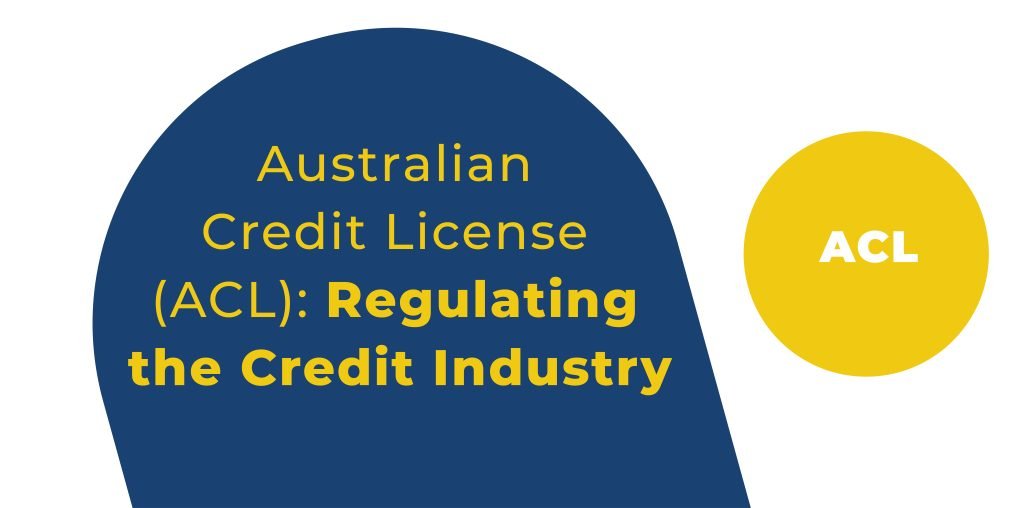The Australian Credit License (ACL) is a crucial regulatory framework established under the National Consumer Credit Protection Act 2009 (NCCP Act). It is designed to ensure that only qualified and reputable entities engage in credit activities in Australia. The ACL system aims to protect consumers, promote responsible lending practices, and maintain the integrity of the credit industry. In this article, we will delve into the key aspects of the Australian Credit License and its significance in regulating the credit market.
Understanding the Australian Credit License
The Australian Credit License is a legal requirement for any individual or organization engaged in credit activities in Australia. It is issued and regulated by the Australian Securities and Investments Commission (ASIC), the regulatory body responsible for overseeing the credit industry. Obtaining an ACL signifies that the licensee has met specific criteria and standards set forth by the NCCP Act.
The ACL applies to various credit-related activities, including providing credit, assisting consumers in obtaining credit, and acting as a credit intermediary. It covers a wide range of credit products, such as loans, mortgages, credit cards, and leases.
Licensing Process and Criteria
To obtain an ACL, applicants must undergo a thorough licensing process. The process involves demonstrating eligibility, meeting stringent criteria, and providing extensive documentation to ASIC. Some key aspects of the licensing process include:
a) Eligibility assessment
Applicants must ensure they meet the eligibility requirements to obtain an ACL. This includes being a fit and proper person or entity, having appropriate financial resources, and possessing the necessary skills and competence to engage in credit activities.
b) Documentation
Applicants must provide ASIC with comprehensive documentation, including financial statements, business plans, compliance policies and procedures, and information on key personnel within the organization.
c) Compliance obligations
Applicants are required to demonstrate a clear understanding of their obligations under the NCCP Act and provide evidence of their ability to comply with these obligations.
d) Responsible lending practices
ASIC assesses whether the applicant has systems and processes in place to ensure responsible lending practices, including appropriate assessments of borrowers’ financial circumstances and capacity to repay loans.
Ongoing Obligations for Licensees
Once granted an ACL, licensees are subject to ongoing obligations to maintain compliance with the NCCP Act. These obligations include:
a) Record-keeping: Licensees must maintain accurate and up-to-date records of their credit activities. This includes records of loan applications, assessments, loan contracts, and any relevant communications with consumers.
b) Compliance with responsible lending obligations: Licensees must continue to adhere to responsible lending obligations as outlined in the NCCP Act. This involves conducting thorough assessments of borrowers’ financial circumstances and ensuring that credit products are suitable for their needs.
c) Reporting requirements: Licensees are required to provide periodic reports to ASIC, including financial statements, details of credit activities, and information about any breaches or complaints received.
d) Internal dispute resolution: Licensees must establish and maintain an effective internal dispute resolution (IDR) process to handle consumer complaints. This process ensures that consumers have a mechanism to address any concerns or disputes related to credit transactions.
ASIC’s Role in Licensee Supervision
ASIC plays a vital role in supervising ACL holders to ensure compliance with the NCCP Act. ASIC’s responsibilities include:
a) Monitoring compliance: ASIC conducts regular monitoring and surveillance activities to ensure that licensees comply with their obligations under the NCCP Act. This may include conducting audits, inspections, and assessments of licensee operations.
b) Enforcement action: ASIC has the power to take enforcement action against licensees who breach their obligations. This can range from issuing warnings and imposing penalties to suspending or canceling the ACL in severe cases.
c) Guidance and support: ASIC provides guidance and support to licensees to help them understand and meet their obligations. This includes issuing regulatory guidance, conducting education campaigns, and offering resources and training programs.
Consumer Protection and Benefits:
The ACL system enhances consumer protection in the credit industry. By requiring credit providers to hold a license, consumers can have confidence that they are dealing with reputable and compliant entities. The ACL system promotes responsible lending practices, transparency, and accountability, reducing the risk of consumers falling victim to predatory lending or fraudulent activities.
Additionally, the ACL system provides consumers with access to an effective complaints resolution process through the licensee’s IDR process. If a dispute arises, consumers can seek resolution through the licensee’s internal procedures, ensuring a fair and impartial assessment of their concerns.
The Australian Credit License (ACL) is a fundamental regulatory framework that ensures the integrity and stability of the credit industry in Australia. By requiring licensees to meet strict criteria, maintain compliance with the NCCP Act, and undergo ongoing monitoring by ASIC, the ACL system promotes responsible lending practices and safeguards consumer interests. Consumers benefit from the assurance that licensed entities have met necessary requirements and are subject to regulatory oversight. The ACL system plays a vital role in fostering a fair, transparent, and accountable credit market, promoting consumer trust and confidence in the industry.
